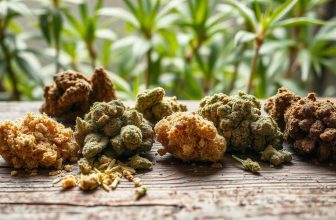Meta Description: Taking CBD oil along with existing medication requires a careful dosage and a proper medical consultation. Read on to find out why.
Can You Take CBD Oil with Meds?
Even though it is known to help improve the efficacy of the meds, taking CBD oil along with existing medication requires a careful hand. Not only is the dosage important, but a medical consultation is just as crucial.
The reason is that CBD can potentially react with some medications negatively. With their knowledge of your medical history, such a complication is something your doctor could help you avoid.
You should be aware of certain things to ensure you get all the benefits of CBD oil while still keeping your health. Here are some of them.
Can CBD Interact with Other Medications?
In the correct dosage, CBD has the potential to boost the effectiveness of medication in patients. As a natural cannabinoid, studies show how it interacts with the enzymes in the body to enhance the drug’s potency.
However, the problem starts when CBD oil dosage is wrong or when it comes in contact with a drug that it is incompatible with. In cases like these, CBD can completely alter the functioning of the metabolizing enzymes found in the liver.
An interaction like this has many consequences because enzymes like the Cytochrome P450 are responsible for breaking down over 60 percent of the medication you take. By inhibiting its proper functioning, CBD can cause too little or too much drug to enter the system. Both these situations can cause symptoms to exacerbate further.
For example, as a cannabis product, CBD can potentially treat many anxiety disorders. If used correctly, it can aid and improve the effectiveness of certain antipsychotic medications.
However, CBD oil can cause a significant spike in drowsiness and fatigue if it comes across any incompatible drug or gets used in excess. Such a condition results from the CBD blocking the CYP450 enzymes from functioning properly.
As a result, an excess of the antipsychotic drug may enter the system, worsening anxiety symptoms rather than treating them. This interaction can lead to accidents as you have lesser control of your motor skills due to excessive drowsiness and sedation.
The efficiency of Your Meds Can Be Altered
When you take certain medication, enzymes called Cytochrome p450 help break down and metabolize it, imparting its benefits throughout the body. In the presence of some medication, CBD can overwork and block the functioning of these very important enzymes.
Such a situation can result in the improper breakdown of the medicine, letting extremely high levels of the substance enter the bloodstream. This interaction of CBD with the metabolizing enzyme Cytochrome P450 can change the medication's efficiency and side effects.
By aggravating the strength of the medication, CBD could potentially damage the kidney and cause complications beyond just the side effect of the medicine.
What Meds Can’t You Take With CBD?
Reports show that CBD may help improve the potency of other medications with the correct dosage. However, CBD may eliminate the medication's effects when this amount exceeds the requirements, rendering it useless.
In some cases, it may do the opposite and heighten the power of the medication instead. CBD is also known to interact with some medications resulting in symptoms like nausea, headache, fatigue, diarrhea, and more.
You must consult with your doctor to see if your current prescription is compatible with CBD or not. For future precaution, here are some medications you should avoid taking simultaneously with CBD oil.
- Quinidine
- Fentanyl
- Ergotamine
- Cyclosporine
- Clonazepam
- Pimozide
- Carbamazepine
- Ketoconazole
- Mirtazapine
- Eslicarbazepine
- Rufinamide
- topiramate
The reaction caused by the interaction of CBD with these medications is usually mild and can get solved with minimal medical attention. However, to avoid such complications altogether, you should consult with your doctor.
Some reports also suggest that CBD may negatively affect people with liver disease. In addition, the substance is not recommended for people with Parkinson's disease either. High doses of CBD may negatively affect muscle movement in these patients, making tremors worse.
How to Use CBD Safely When Taking Medications
Dosage and medical supervision are crucial when using CBD alongside other medications.
The average daily dose of 5 to 25 mg of CBD oil is an unofficial prescription. CBD oil has no legal restrictions and recommendations on its dosage because it is not a regulated substance.
The only CBD-based drug formally recognized by the FDA is the antiepileptic drug, Epidiolex. However, this dosage for treating seizures and thus is not a fit prescription for treating every condition.
Since there is a lack of a conclusive prescription, you should always check in with your medical professional before using CBD oil. Not only will they help arrange an appropriate dose for you, but they will also ensure that your existing medication does not react with the CBD.
It would help if you had double the caution when taking CBD with medication because it can affect how your body breaks down these drugs. This substance can sometimes exaggerate the potency of your medication to alarming levels.
The wrong amount of CBD or CBD with the wrong drug can either exacerbate or negate the medication's properties by regulating the enzyme Cytochrome. P450. A situation like this can worsen your symptoms instead of treating them, making medical supervision a must when taking CBD in conjunction with other medication.
Conclusion: Why Medical Consultation Always Necessary
Reports show that CBD can cause blood pressure levels to drop and cause symptoms like nausea, cramps, vomiting, and more when reacting with blood pressure medication.
You may have been taking blood pressure medicine your whole life yet unaware of such a risk. Information like this is not always accessible to the public. This reason is why a consultation with your doctor is always necessary.
These medical professionals have complete knowledge of your medical history and can use this information to formulate a unique dosage plan. They will also be able to tell you whether the CBD you intend to add to your treatment is compatible with your current medication.
These are things you may not necessarily be able to figure out on your own, and a medical professional can help you avoid all unwarranted side effects that come with this lack of knowledge.
Sources:
https://www.ncbi.nlm.nih.gov/pmc/articles/PMC5470879/
https://sites.psu.edu/cannabinoid/files/2020/06/NTI-Meds-to-be-Closely-Monitored-when-Co-Administered-with-Cannabinoids_2020_04_25.pdf
https://doi.org/10.1111/epi.13060
https://doi.org/10.1089/can.2016.0034
https://www.ncbi.nlm.nih.gov/pmc/articles/PMC4093435/
Follow us on 
Join the Community
Don't miss any news with our newsletter





